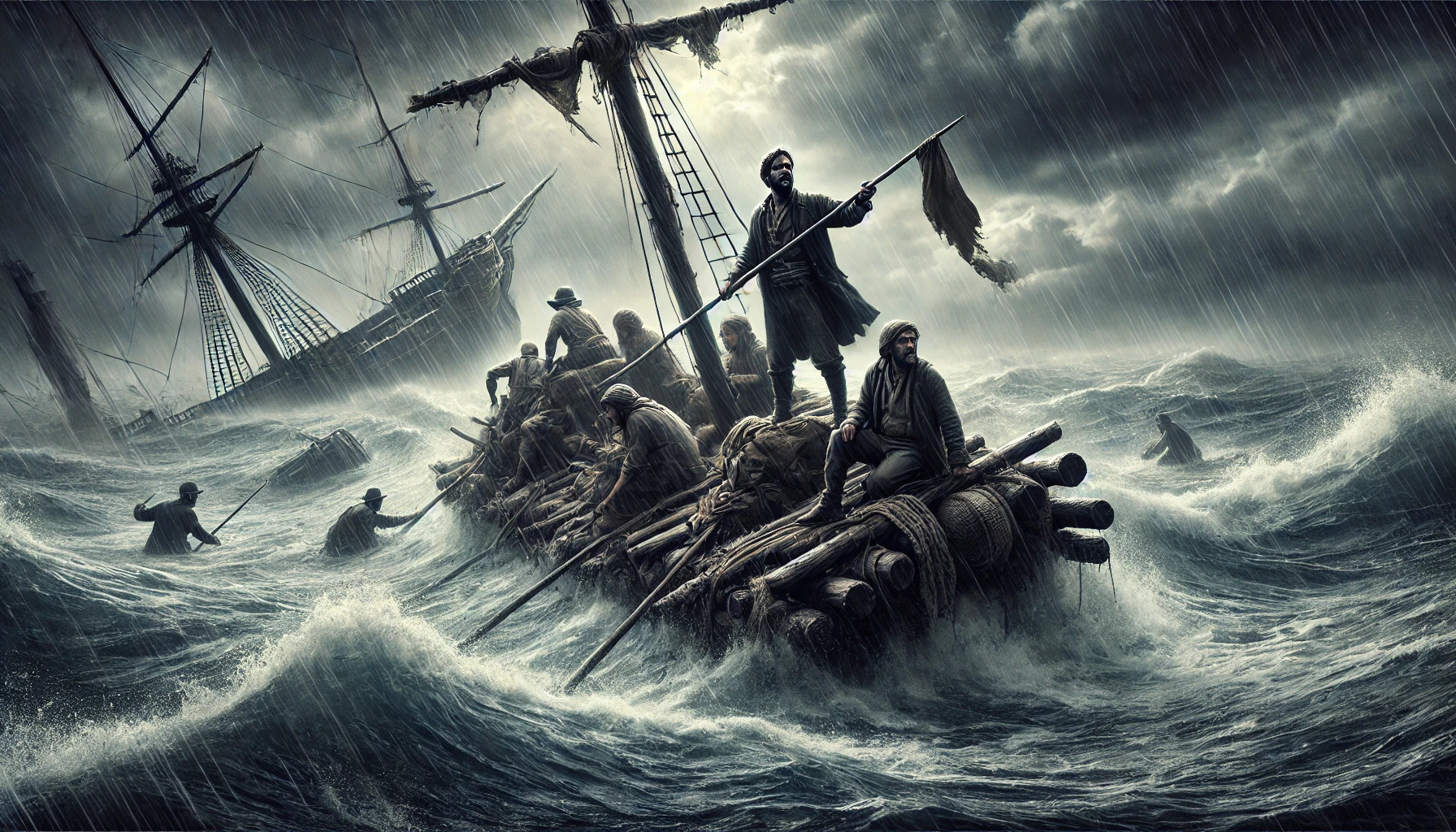The ocean can be a beautiful and serene place, but it can also turn deadly in an instant. Survivors often tell incredible stories of their struggles against the elements after a shipwreck. These harrowing tales of resilience showcase how the human spirit can prevail even in the face of overwhelming odds.
From battling hunger and thirst to navigating through storms, these stories highlight the power of hope and determination. Many shipwreck survivors have faced life-threatening situations but managed to stay alive through sheer will. Their experiences remind us of the strength that lies within each person when confronted with life’s toughest challenges.
As readers delve into these remarkable accounts, they will discover how survival instincts kick in and the bonds forged between individuals during desperate times. These narratives not only capture the imagination but also inspire reflection on what it means to fight for survival.
Defining Shipwreck Survivors
Shipwreck survivors are individuals who endure the experience of being stranded at sea after a maritime disaster. Their stories reveal incredible acts of courage, determination, and will to survive against overwhelming odds. Each survivor’s journey highlights unique profiles of resilience and the common challenges they face during their ordeal.
Profiles of Resilience
Many shipwreck survivors emerge as symbols of resilience. For instance, Stephen Crane’s work, “The Open Boat,” illustrates four men stranded after a shipwreck. Their teamwork and determination showcase the human spirit’s capacity to overcome fear and despair.
Another notable example is Gabriel García Márquez’s “The Story of a Shipwrecked Sailor.” This tale follows a sailor’s ten-day struggle at sea, focusing on his mental and emotional battles. Survivors often need to draw on inner strength and adapt to changing circumstances, making their stories compelling and inspiring.
Common Challenges Faced
Survivors of shipwrecks face numerous challenges that test their limits. One significant issue is the lack of food and water. Many survivors must ration what little they have, often leading to dehydration and starvation.
Weather conditions present another major hurdle. Survivors endure harsh sunlight, storms, and freezing temperatures. They must find ways to protect themselves from the elements while reducing sun exposure and staying warm at night.
Lastly, psychological strain plays a crucial role. Loneliness, fear, and uncertainty can be overwhelming. Survivors often grapple with despair, needing to maintain hope to survive long enough for rescue.
Epic Tales of Survival
Survival stories from both historical and modern times showcase the incredible resilience of individuals stranded at sea. These tales of heroism and determination highlight the human spirit’s ability to overcome adversity in the face of daunting challenges.
Historical Shipwreck Events
One of the most famous historical shipwrecks is the sinking of the British merchant ship Ben Lomond in 1942. A German U-boat torpedoed the ship, resulting in the loss of 53 crew members. The sole survivor, Poon Lim, spent hours in the water before finding a small raft, showcasing incredible willpower and survival skills.
Another notable event is the 1856 wreck of the whale ship Essex. After a sperm whale attacked the ship, the crew was left stranded in small boats for more than 90 days. The harrowing experience led some crew members to resort to cannibalism before the survivors were rescued. These events serve as stark reminders of the dangers faced by seafarers.
Modern-Day Survivor Stories
In more recent history, the story of Harrison Okene stands out. In 2013, his fishing vessel capsized off the coast of Nigeria, leaving him trapped in an air pocket for three days. When rescuers finally arrived, he emerged alive, astonished but grateful to have survived such a precarious situation.
Another gripping account involves the crew of a sailboat who became stranded during a storm. They managed to send out a distress signal, and it took several days before they were located and rescued. Their determination and teamwork played crucial roles in their survival against the odds.
Psychology of Survival
Surviving a shipwreck is not just a physical challenge, but a mental battle as well. Those who find themselves adrift often rely on specific coping strategies and may experience lasting psychological effects from their ordeal.
Coping Mechanisms at Sea
Survivors use various coping mechanisms to withstand the ordeal of being lost at sea. One common strategy is focus on survival. This includes rationing food and water while maintaining a hopeful outlook.
Many survivors also engage in self-talk, which involves positive affirmations to combat despair. They may remind themselves of past hardships they overcame or visualize being rescued.
Another technique is creating routines, even in chaos. Simple tasks like collecting rainwater or fishing can provide purpose, helping to pass the time and reduce anxiety. By establishing a sense of control, survivors can manage stress more effectively.
Long-Term Effects of Survival
The experience of survival can leave deep emotional scars. Many survivors face post-traumatic stress disorder (PTSD), which may involve flashbacks and anxiety. The stress of their ordeal can manifest in various ways long after rescue.
Survivors may also experience survivor’s guilt, especially when others did not make it. This feeling can lead to significant emotional struggles, requiring professional help to process.
Additionally, some individuals develop a new appreciation for life. They might embrace adventure and relationships with more intensity, finding joy in moments they once took for granted. Understanding these effects can aid in providing support for those who have faced such harrowing experiences.
Life After Rescue
Survivors of shipwrecks face unique challenges after being rescued. Their journeys back to normal life often involve overcoming emotional and psychological hurdles while also contributing valuable insights to survival practices.
Reintegration into Society
Returning to society can be difficult for shipwreck survivors. They may deal with trauma from their experience, which can lead to anxiety or depression. Many find support through therapy or groups with shared experiences.
Survivors often struggle to reconnect with family and friends. Their time at sea can feel foreign to loved ones, making it hard to share their stories. Some survivors choose to advocate for mental health awareness, helping others understand trauma.
Many also reinvent their careers or find new passions inspired by their experiences. Their survival stories can motivate them to pursue work in public speaking, writing, or environmental advocacy.
Contributions to Survival Knowledge
Shipwreck survivors frequently become important voices in survival education. They share their first-hand experiences to teach others how to prepare for emergencies at sea.
Their stories can highlight essential survival techniques. For example, Poon Lim, who survived on a life raft for months, demonstrated the importance of finding fresh water and securing food.
Survivors often collaborate with organizations to improve safety protocols on ships. By sharing lessons learned, they help others enhance their chances of survival during maritime emergencies.

